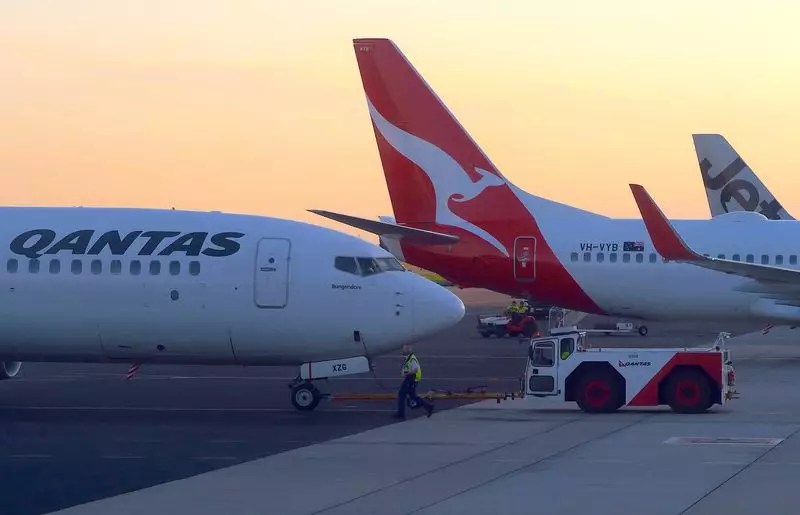In a recent ruling, Australia’s flag carrier, Qantas Airways, was ordered by the Federal Court to compensate three former baggage handlers a total of A$170,000 (approximately $114,000) for their unlawful termination in 2020. This landmark decision has illuminating implications for a larger cohort of around 1,700 former workers whose dismissals stemmed from the airline’s controversial outsourcing strategy during the COVID-19 pandemic. Federal Court Judge Michael Lee was clear in his assertion that the severance of these workers was not only unjust but a measure taken to thwart potential industrial action rather than based on genuine economic necessity.
Qantas, which had framed the sackings as a necessary cost-cutting exercise amidst the financial turmoil of the pandemic, now faces the daunting task of reassessing its reasoning. Judge Lee’s judgment indicates that, had the airline chosen to outsource legally in 2020, they would have likely pursued lawful avenues in 2021, effectively saving A$100 million annually. The ruling underscores the significance of ethical labor practices, especially in the wake of the pandemic, where many corporations grappled with difficult decisions.
The Broader Implications for Qantas
This judgment sets a critical precedent as Qantas navigates its legal responsibilities concerning its former ground workforce. More than just a financial setback, the ruling places the airline’s corporate governance under scrutiny, which could affect stakeholder confidence. The ongoing negotiations with the Transport Workers Union (TWU) are pivotal, especially as the airline prepares to calculate the total damages owed to all affected workers.
Historically, Qantas has struggled with its reputation following a series of contentious actions during and after the height of COVID-19 restrictions. In May, the airline set aside a substantial A$120 million to settle a separate lawsuit from regulators accused of selling tickets for flights that had already been canceled. Thus, the financial burden continues to mount as legal battles become intertwined with public perception and trust.
Leadership Response and Future Outlook
Newly appointed CEO Vanessa Hudson, who took office in November 2023, acknowledged the unsettling ramifications of the court’s decision. In her statement, Hudson expressed regret for the harm inflicted on employees and emphasized that Qantas must learn from its past mistakes. This acknowledgement is crucial; it signals a potential paradigm shift within the company. However, words must translate into concrete actions as expectations mount from both the union and the wider public for transparency and fair compensation.
The upcoming court date on November 15 will be critical for determining the future course of compensation discussions. The judicial expectations for Qantas to address the overarching grievances of the unlawfully terminated workers may shape the company’s operational strategies going forward.
Under this scrutiny, Qantas has a unique opportunity to redefine its labor relations policies and restore its reputation. The airline now stands at a crossroads: it can either continue down a path fraught with public distrust or embrace an approach grounded in accountability and ethical treatment of its workforce. The stakes could not be higher, as the airline seeks to rebuild in a post-pandemic world that demands greater corporate responsibility.


Leave a Reply